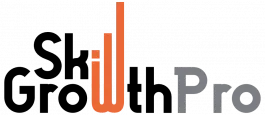Learning new things feels like a challenge for many of us. Learning is often associated with sitting at a desk with your head in a textbook, but truthfully, learning is far greater than this.
We are continuously learning through our actions and interactions, whether we realize it or not. In this article, we will explore why learning is a skill that you can improve.
Here’s why learning is a skill and not only an ability:
Learning is a skill because it is something you can train yourself to get better at. Different learning or training strategies suit different people, and if you can find a method that suits you, you can improve your learning skills. Ability is often considered something you are naturally gifted at and haven’t had to work at much to improve. Some of us are lucky to have the natural ability to learn. Still, learning as a whole is a skill we can improve.
Table of Contents

What Exactly is a Skill?
We all somewhat understand what the word skill means and often use it in our everyday language. In simplest terms, we say a person is skilled when they are excellent at a specific task.
However, if we take a closer look at the technical definition of skill, we find it is the learned ability to do something well, often within a given amount of time. The most critical point of this definition is the word learned. You can absolutely learn a skill.
There are many different categories of skills, from hard skills to soft skills or even life skills. Still, the definition stands. It is possible to improve in all these areas.
What is a Learning Skill, and which skills are learning skills? (Examples below)
A learning skill is any skill that can improve your ability to learn. As you can imagine, there are so many things that can be considered a learning skill.
To better understand what some learning skills are, it is easier to categorize them. A study and report completed by Cisco concluded that learning skills fall under the “four C’s” of learning.
The 4 C’s of learning skills are Critical Thinking, Creativity, Collaboration, and Communication. Improving these learning skills are some ways individuals can stay competitive in a fast-evolving education system and the job market.
Besides the 4 C’s, we feel another essential learning skill is that of organization.
5 examples of learning skills:
Critical Thinking
Critical thinking is all about finding solutions to a problem, assessing outcomes and risks, and analyzing a situation. Here you need to be able to think clearly and look at things from multiple perspectives.
Some examples include:
- Paying attention to detail
- Interpretation
- Comparing and contrasting
- Decision making
Creativity
Creativity in learning skills comes down mainly to not being afraid of making mistakes. It’s about not following all of the guidelines exactly and walking off the beaten path. Here, it would help if you again looked at things from multiple perspectives, especially those that aren’t obvious.
This learning skill can be found in many of the most brilliant minds throughout human history. Names like Thomas Edison, Walt Disney, Marie Curie, Steve Jobs, and Leonardo Di Vinci come to mind.
Often, creativity may not be the most efficient or standard way to complete a task and can even result in failure. Still, these “failures” are some of the best ways to learn and open up previously not thought of opportunities.
Some examples include:
- Curiosity
- Problem-solving
- Innovation
Collaboration
In most cases, you will have to work with some people. Although you can be an expert in a field, you will still have to collaborate with others. Improving your skills in this field is essential in finding success in pretty much all areas.
Collaboration has a lot of similarities to the last of the 4 C’s – Communication. Some examples of collaboration include:
- Conflict resolution
- Delegation
- Reliability
- Teamwork
- Leadership
Communication
To collaborate well with others, you will also need to be able to communicate properly. There is a definite skill in simply expressing challenging ideas so that others can understand.
Some examples include:
- Communication methods
- Writing
- Public speaking
- Persuasion
- Respect & Empathy
- Listening and Understanding
Organization
Organization allows you to complete things efficiently and therefore is also a critical learning skill. You can get more done and focus your learning on the most effective tasks.
Some examples include:
- Productivity & time management
- Planning

How can I improve my learning skills? (5 Strategies)
Now that we know that learning is a skill that we can improve, the next logical thing to consider is… how?
We have five tips that can help you improve your learning skills listed below:
Be Interested in the Topic
Learning becomes infinitely more manageable when we are actually interested in the topic we are learning about. Learning more about a hobby or activity we enjoy doing often doesn’t even feel like learning.
Without realizing it, we voluntarily spend our free time immersing ourselves in the topic. Watching Youtube videos, listening to podcasts. These are all ways we end up naturally learning more about something. It’s easy! Because we are interested in the topic.
When we aren’t interested, however, it’s a different story. Many of us shudder at memories of forcing ourselves to study for classes we hated in school. When we aren’t interested in something, we typically end up procrastinating and not doing as good of a job as we actually could.
Learning is no different. If we could care less about the topic, it’s hard to find the motivation to keep going.
So the trick is to make what you are learning about interesting!
This becomes easier if you have an end goal in mind. Will learning about this topic give you certain benefits? This can be a great motivator.
Another good strategy is to gamify your learning. This means rewarding yourself for progress. Did you get a great 30-45 minute learning session completed? Reward yourself with a walk in the sunshine if possible or a dance break.
The key is to find ways to become genuinely interested in what you are trying to improve.
Improve Learning Conditions
Learning skills are greatly improved by being in a productive space, both physically and mentally.
Create an environment that allows you to focus and improve your learning skills. This isn’t the same for everyone. Some of us enjoy a tidy desk or a library setting, and others enjoy sitting under a tree.
Find out what works for you!
Learning conditions are also greatly improved by taking care of yourself. It’s essential to get enough rest and to get out there and move a bit as well. Taking care of your health through sleep and physical activity allows you to focus for longer and retain a lot more of what you are learning.
Identify What Moves the Needle (Pareto Principle)
There are usually only a couple of things you need to focus on to gain the maximum value of something. This is called the Pareto Principle, sometimes referred to as the 80/20 rule. The rule considers that often in life, things are not equal. It considers that many times 20% of input creates 80% of the results.
These numbers may not align up precisely to 80/20 in every industry. Still, it is expected that focusing on a specific activity will deliver more results than focusing on a different specific activity.
With learning, we often feel like there is so much information to absorb, so we end up jumping around everywhere. It is better to focus your attention on what will actually move you forward and bring you closer to your goal.
A great example is learning a new language. It is common for native speakers to know somewhere between 10,000-40,000 words. It turns out, however, that we commonly only use around 3,000 words in our day-to-day lives. If you are learning a new language, it makes the most sense to focus on these 3,000 words.
Work on identifying what will move the needle most in your field, and focus on that.
Immersion
The best way to learn new skills is by immersing yourself in the topic.
Dive deep into your field of choice and find who the influential people are. Watch their content, listen to their podcasts, read their books. Join the social clubs, be it offline or online.
Find out where other people who are interested in the topic hang out and get involved. Today the world is more connected than ever, and it is easier to find experts on a topic or like-minded people to connect with. You will find that you can learn more and faster when simply immersing yourself in that world.
Then the most important thing is actually to practice or train yourself in the field or topic. It is great to read and learn about the subject, but you learn the most by doing and making mistakes at the end of the day!
Remember when you were learning how to swim or ride a bike? Image if all you did was watch Youtube videos or listen to podcasts about riding a bike. You would know some principles, like push your leg down to move forward, but you definitely wouldn’t know how actually to ride a bike.
Get out there and get on that bike! It’s the only way you will actually learn.
Keep going…
People who find success in a field did not stop when it first didn’t work out.
It is common for us to stop when things aren’t working. It’s an uncomfortable feeling to not be good at something and feel like you are taking two steps backward for every step forward.
Still, it is something we should embrace. It is the only way to get better, and it is one of the best ways to learn.
A lot of things have a steep learning curve. It can be demotivating to feel like you are just walking against a wall over and over again, but if you keep going, it is common for things to click, and suddenly you are making significant progress.
Find ways to stay motivated and keep going!
Also frequently asked (FAQ)
Why is learning a skill?
Learning is a skill because we can train ourselves to get better at different aspects of it. All of the learning skills we mentioned above can be worked on and improved, and by doing this, you will become a better learner.
Is Learning Fast a Skill?
Learning fast is absolutely a skill that you can work on. We covered how learning is a skill as it is something you can practice and improve upon. Learning fast works the same way. Improving your organizational skills is likely going to make you a faster learner. You will be able to cover more topics, focus on what matters most, and so, learn faster!
Why are learning skills important?
Learning skills are essential as they help you become a well-rounded and happy individual. Today industries are constantly changing and upgrading, and if we aren’t able to keep up by learning new skills, we end up getting left behind.
Some of the reasons learning skills are important include:
- Becoming adaptable and staying relevant
- Opens you up to new opportunities
- It’s healthy
- Draws people to you
Is Learning a hobby?
Learning is one of the best hobbies someone can have. It is a great and fun way to keep challenging yourself in multiple areas.
We explored this topic further here and gave some awesome ideas for what to learn as a hobby.
Sources
https://www.aeseducation.com/blog/four-cs-21st-century-skills
https://media.erepublic.com/document/CDE18_BRIEF_Cisco_V.PDF




